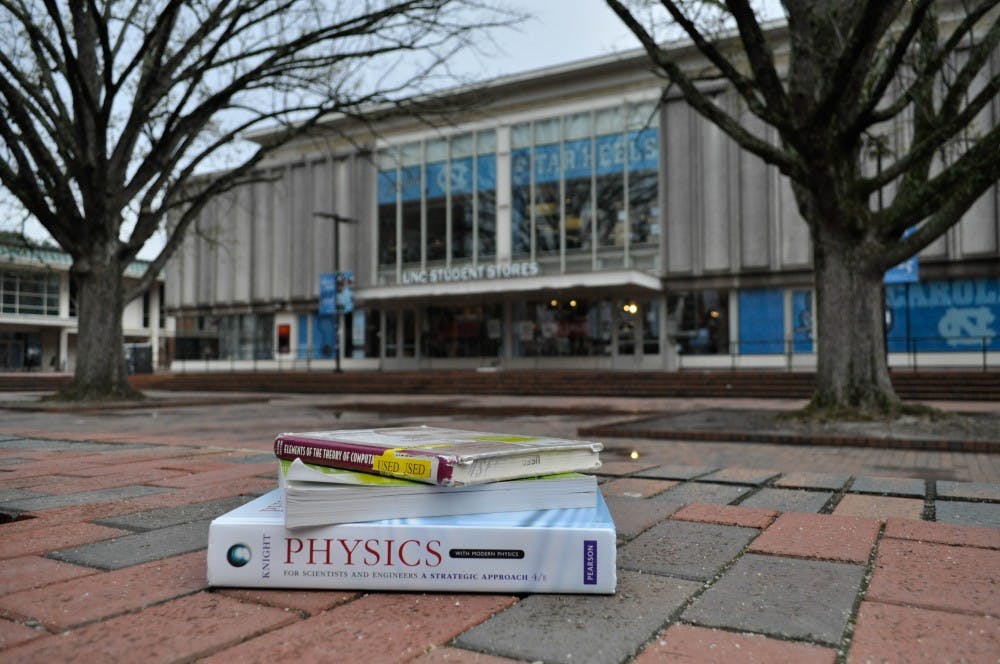As remote learning becomes more common in the wake of the COVID-19 pandemic, some groups have expressed concern that expensive access codes for online learning materials may pose a barrier for some college students.
On June 8, U.S. PIRG, the federation of state Public Interest Research Groups (PIRGs), released a report on the impacts of textbook prices on college students. The report is based on a national survey conducted in fall 2019 of nearly 4,000 students from 83 institutions, including UNC, and is the second edition following a 2014 report on the same issue. The survey received 121 responses from UNC students.
An access code is a password that lets students behind a paywall to access a digital textbook, homework assignments, tests, quizzes and other materials. Cailyn Nagle, an affordable textbooks campaign director for U.S. PIRG and lead writer of the report said a single access code typically costs around $100.
“If they don’t buy the access code, students are being priced out of access to their homework, their exams, the materials they’ve been assigned and participation in a class they’ve already paid tuition for,” Nagle said.
Anne Gilliland, the UNC Libraries scholarly communications officer, said access codes don't allow students to resell or pass on learning materials to friends, like they could with traditional textbooks. Because access codes expire, students don’t have long-term access to the content of their learning materials, she said.
However, Gilliland said access codes are sometimes the only option for certain classes and that online options have recently become more popular.
“Certainly, in the last few months there has been a desire to try to find alternatives online, especially last semester when people had to pivot to online resources,” she said.
Sig Sigafose, a rising junior and chapter chairperson of the UNC Chapel Hill branch of NCPIRG, said she has had to purchase an access code every semester she has been at UNC.
“It’s really frustrating because they are extremely expensive,” she said. “Most of the time I’m always trying to look for a cheaper option.”



